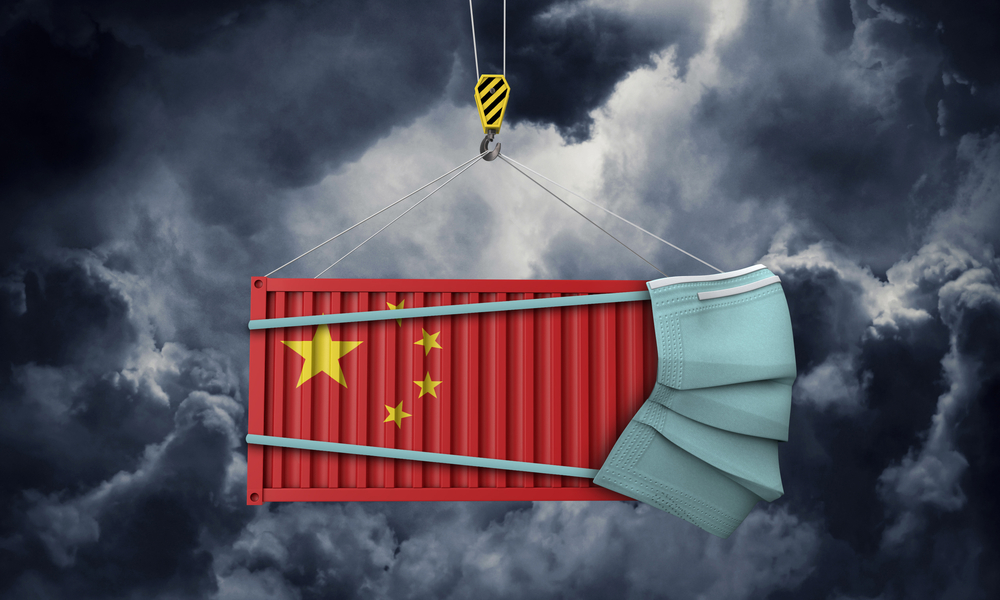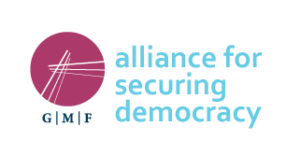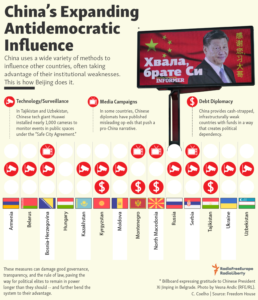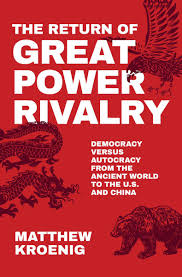
NED Forum/shutterstock
The implications of the Covid-19 pandemic are “potentially monumental” for China, but the ruling Communist Party’s leader, Xi Jinping has seized on the crisis as an opportunity in disguise. And the state propaganda machine is aggressively backing him up, touting his leadership in fighting the pandemic, the New York Times reports:
If Mr. Xi can survive this year unscathed, he has mapped out a triumphant march to a Communist Party congress in 2022, when he could press for another five years as China’s top leader. Next year will bring the grandiose centenary of the founding of the Chinese Communist Party; and in the following year China will host the Winter Olympics.
 “If you position yourself as a great helmsman uniquely capable of leading your country, that has a lot of domestic political risk if you fail to handle the job appropriately,” said Carl Minzner, a professor of Chinese law and politics at Fordham University and the author of End of an Era: How China’s Authoritarian Revival is Undermining its Rise. “That’s a risk for Xi going forward.”
“If you position yourself as a great helmsman uniquely capable of leading your country, that has a lot of domestic political risk if you fail to handle the job appropriately,” said Carl Minzner, a professor of Chinese law and politics at Fordham University and the author of End of an Era: How China’s Authoritarian Revival is Undermining its Rise. “That’s a risk for Xi going forward.”
So far, Mr. Xi has largely succeeded in rewriting the narrative in China, the Times adds.
“The deeper implications of Covid for China is still very much unclear at this point, but potentially monumental in hindsight,” said Adam Ni, the director of the China Policy Center, a research organization in Canberra.
China is boosting its coronavirus propaganda offensive through a growing number of Twitter accounts to push out tens of thousands of inflammatory messages, according to a new report.
 Since the beginning of April, 200 of Beijing’s diplomatic and state-run media accounts have published around 90,000 tweets as part of an offensive – with many spreading a conspiracy theory that the deadly virus originated in a U.S. lab, not China — the Alliance for Securing Democracy told NBC News.
Since the beginning of April, 200 of Beijing’s diplomatic and state-run media accounts have published around 90,000 tweets as part of an offensive – with many spreading a conspiracy theory that the deadly virus originated in a U.S. lab, not China — the Alliance for Securing Democracy told NBC News.
Overall Twitter output from Chinese government-linked accounts has nearly doubled since January – and it has increased the number of its diplomatic accounts as well, up to 135 from around 40 this time last year, said ASD’s Bret Schafer. They “have become more aggressive, more conspiratorial, and the ones who have done that are their most popular accounts and have by far the most engagement,” he added.
“The primary goal of this rhetoric is to demonstrate to Chinese domestic constituencies that the Communist Party is not lying prostrate before American accusations,” added Robert Daly, the director of the Kissinger Institute on China and the United States at the Wilson Center, a Washington, D.C.-based think tank.

RFE/RL
The diatribes unleashed by Foreign Ministry information chief Hua Chunying are usually ignored in the West, but for China’s people, they are often the only words on the United States that make it through the heavily censored media. To much of the West, Hua, 50, is unknown, or only known as a cog in Beijing’s disinformation machine. Within China, she is a minor political celebrity, with patriotic fans affectionately calling her “big sister” and “goddess” online, the Washington Post reports.
Propaganda has been a major push under Chinese leader Xi Jinping, whose father was once propaganda minister, said Joseph Torigian, an assistant professor at American University and the author of a forthcoming biography on Xi’s father.
“Xi Jinping is absolutely obsessed with the idea of motivation and ideals,” he added.
 Matthew Kroenig’s The Return of Great Power Rivalry teaches some invaluable lessons regarding the challenges that tyrannical regimes pose to democracies, FDD analyst Benjamin Weinthal writes for the Jerusalem Post. It is worth recalling the words of America’s greatest social and political philosopher, Sidney Hook: “In contrast to totalitarianism, democracy can face and live with the truth about itself,” he adds.
Matthew Kroenig’s The Return of Great Power Rivalry teaches some invaluable lessons regarding the challenges that tyrannical regimes pose to democracies, FDD analyst Benjamin Weinthal writes for the Jerusalem Post. It is worth recalling the words of America’s greatest social and political philosopher, Sidney Hook: “In contrast to totalitarianism, democracy can face and live with the truth about itself,” he adds.
In the latest episode of the Power 3.0 podcast, featured guest Lucrezia Poggetti discusses the evolving dynamics of Beijing’s influence operations in the European Union—and in her own native Italy—in the context of the COVID-19 pandemic, as well as how various European audiences have reacted to China’s “mask diplomacy.” Lucrezia Poggetti is an analyst at the Mercator Institute for China Studies (MERICS) in Berlin, Germany, where her research focuses on Europe-China relations. Christopher Walker, NED vice president for studies and analysis, and Shanthi Kalathil, senior director of NED’s International Forum for Democratic Studies, co-host the conversation.
Time is running short for a comprehensive and coordinated response by the US and Europe to China’s hostile takeover of Western economic assets, argues Andrew A. Michta of the George C. Marshall European Center for Security Studies. As long as the CPC remains in control, China will not become a responsible stakeholder in the international system and should not be treated as such, he told the 14th Lennart Meri Conference:
Today China remains a totalitarian state where a 90-million-strong communist party controls 1.4 billion people and whose regime’s principal objective is to preserve its power and squash any and all dissent. It is time to revisit the fundamentals when it comes to the incompatibility of liberal democracy and communism. It is time to set aside the “globalist” delusions of the past three decades. As the saying goes: “If you find yourself in a hole, stop digging”. Before it is too late.







